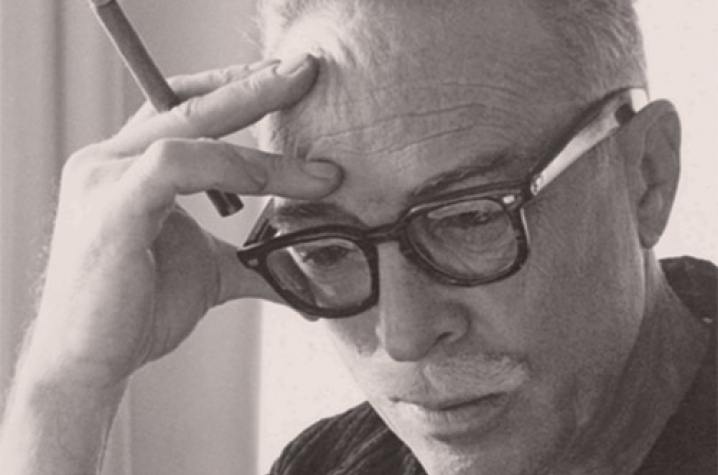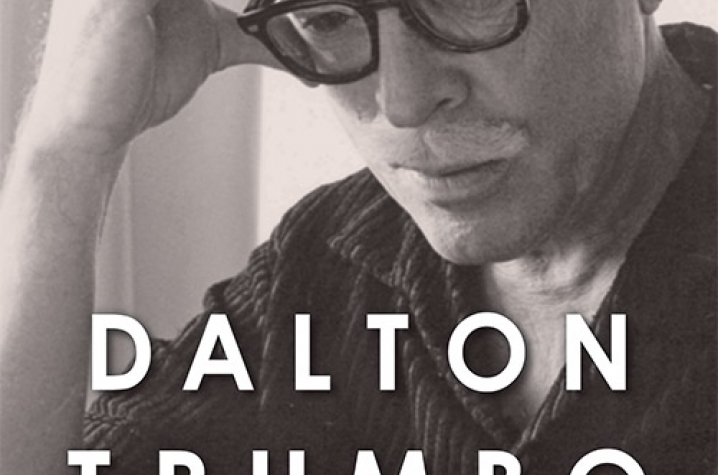Hollywood Blacklister Subject of New UPK Book, Award-Nominated Movie
LEXINGTON, Ky. (Jan. 26, 2016) — Now remembered as the Oscar-winning screenwriter of films like "Roman Holiday" (1953), "Spartacus" (1960) and "Exodus" (1960), during the Cold War, Dalton Trumbo was perhaps most famous, or infamous, after he was sentenced to a year in prison at the Federal Corrections Facility in Ashland, Kentucky, as a member of the Hollywood Ten who opposed the House Un-American Activities Committee (HUAC). Today, movie enthusiasts can learn more about this legend in the history of film at their nearest bookstore or movie theater.
Trumbo is the focus of a new University Press of Kentucky (UPK) biography, "Dalton Trumbo: Blacklisted Hollywood Radical," by Larry Ceplair and Christopher Trumbo, Dalton’s son. The book is a comprehensive biography of the screenwriter, playwright and author who sacrificed a successful career to stand up for his rights and defend political freedom.
With the movie award season underway, Trumbo is also finding his place on the big screen again in a new biopic starring Bryan Cranston as the besieged writer. "Trumbo," directed by Jay Roach, received two Golden Globes nominations — Bryan Cranston for best performance by an actor and Helen Mirren for best actress in a motion picture: drama. Cranston has also received an Oscar nomination for best actor in a leading role. In addition, the movie garnered the most nominations of any film for the Screen Actors Guild Awards being presented this weekend.
When Dalton Trumbo was called to testify to HUAC in 1947, committee chairman J. Parnell Thomas denied Trumbo permission to read his opening statement, despite an earlier hearing where Thomas had allowed an opening statement by white supremacist Gerald L.K. Smith.
The testimony that followed, or rather, a lack of testimony, was a battle of wills between the leading member of the Hollywood Ten, refusing to answer questions about his membership in the Communist Party, and the chairman’s gavel, which continuously pounded away at any of Trumbo’s responses.
Trumbo was subsequently sent to Kentucky’s Ashland Federal Corrections Facility as prisoner number 7551 for his refusals, spending 11 months in incarceration from 1950 to 1951. Most of the citizens of Ashland did not realize they had subversives in their midst, but Trumbo was popular with the other inmates. Many were illiterate, and Trumbo wrote letters for them.
Yet, despite 13 years on the blacklist, spending a year at the Ashland Federal Correction Facility after being cited for contempt of Congress, and the financial hardships he endured while his name was on the blacklist, Trumbo built a legacy as one of the most versatile writers of the 20th century.
UPK is the scholarly publisher for the Commonwealth of Kentucky, representing a consortium that now includes all of the state universities, five private colleges and two historical societies. The editorial program of the press focuses on the humanities and the social sciences. Offices for the administrative, editorial, production and marketing departments of the press are found at UK, which provides financial support toward the operating expenses of the publishing operation.
MEDIA CONTACT: Whitney Hale, 859-257-8716; whitney.hale@uky.edu






